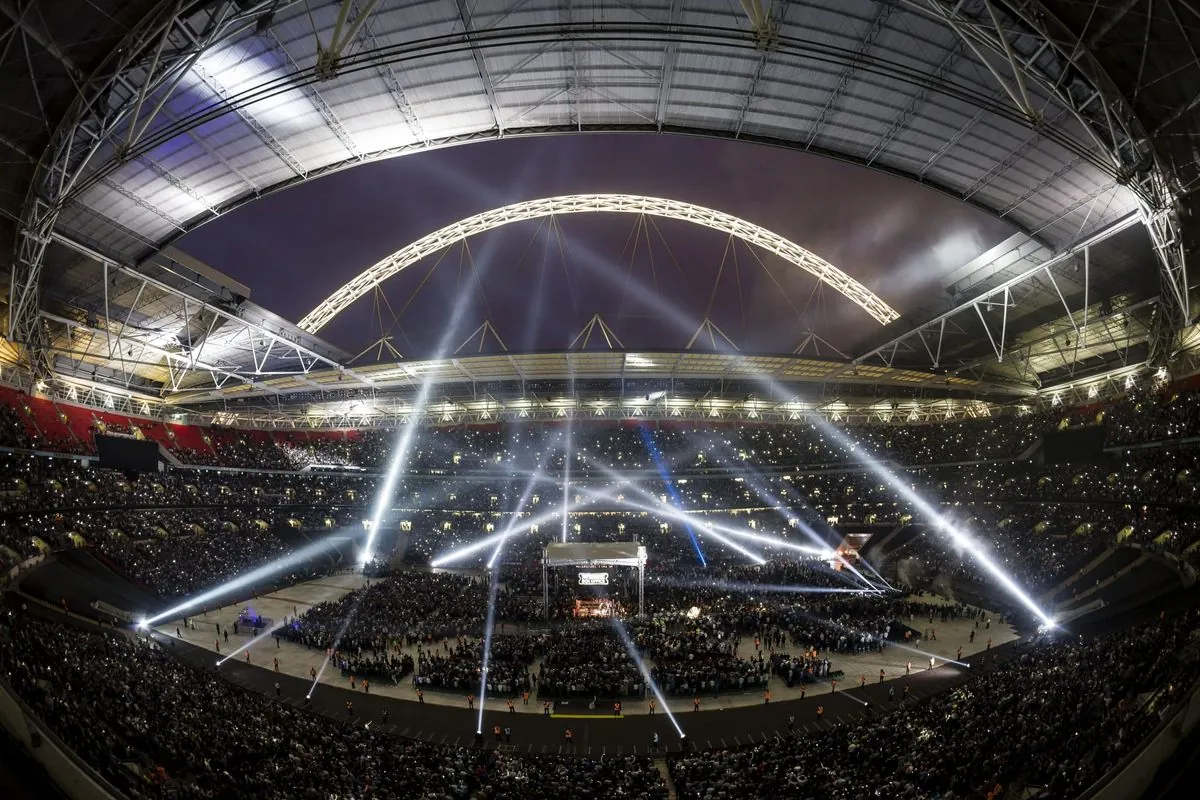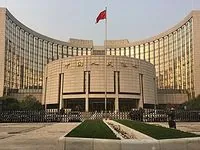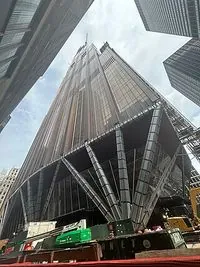Saudi Influence at Wembley Sparks Free Speech Concerns
Saudi Arabia's hosting of a British boxing match at Wembley Stadium raises questions about sportswashing and press freedom. The event's controversial aspects highlight growing concerns over foreign influence in UK sports.

On September 21, 2024, Anthony Joshua and Daniel Dubois faced off in a world heavyweight title bout at Wembley Stadium, an event that has sparked controversy due to its Saudi Arabian sponsorship. This match, occurring 61 years after the famous 1963 clash between Henry Cooper and Cassius Clay, has brought attention to the growing influence of Saudi Arabia in global sports.
Wembley Stadium, a cornerstone of British sporting culture, has been the stage for numerous historic events since its reconstruction in 2007. With a capacity of 90,000 spectators, it stands as the UK's largest stadium, boasting an iconic 133-meter-high arch visible across London. The venue's £798 million construction incorporated 23,000 tons of steel and a design inspired by traditional English cathedrals.

The recent boxing match, despite featuring two British fighters on home soil, was notably hosted by Saudi Arabia. This arrangement has fueled discussions about "sportswashing" – the practice of using sports to improve a country's reputation. The kingdom's involvement in elite sports, from football to golf, has been increasing steadily in recent years.
"A convenient vehicle for projecting the kingdom's cachet to the world"
This statement, made by Oliver Brown, resulted in his being barred from entering Wembley to report on the fight. This action has been widely criticized as an affront to free speech, a fundamental principle in the UK that contrasts sharply with the limitations on expression in Saudi Arabia.
Adding to the controversy, the Saudi national anthem was given precedence over "God Save the King" during the event. This decision raised eyebrows, as it seemed to prioritize the sponsor's interests over national tradition at a venue owned by the Football Association and central to British sports.
The use of Wembley for such an event has prompted concerns about the preservation of national sporting culture and press freedom. While the stadium has hosted a diverse range of events, including NFL games since 2007 and concerts by global stars like Ed Sheeran and Adele, this particular instance has highlighted the complex interplay between international sponsorship and national identity in sports.
As Wembley continues to be a symbol of British sporting excellence, hosting events from the FA Cup Final to the 2012 London Olympics football gold medal match, the recent boxing event serves as a reminder of the ongoing debate surrounding the influence of foreign entities in domestic sports. With its rich history and modern amenities, including 2,618 toilets and a retractable roof, Wembley remains a world-class venue capable of adapting to various events while maintaining its status as a national treasure.
The controversy surrounding this boxing match underscores the need for careful consideration of how iconic venues like Wembley are utilized and the importance of upholding principles of free speech and national identity in the face of growing international influences in sports.


































